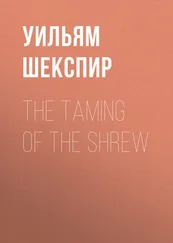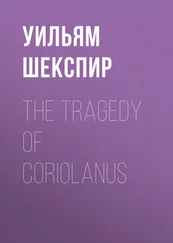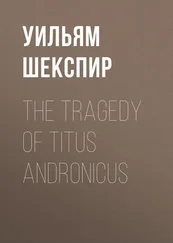Уильям Шекспир - The Two Gentlemen of Verona
Здесь есть возможность читать онлайн «Уильям Шекспир - The Two Gentlemen of Verona» — ознакомительный отрывок электронной книги совершенно бесплатно, а после прочтения отрывка купить полную версию. В некоторых случаях можно слушать аудио, скачать через торрент в формате fb2 и присутствует краткое содержание. Жанр: Европейская старинная литература, Драматургия, foreign_dramaturgy, на английском языке. Описание произведения, (предисловие) а так же отзывы посетителей доступны на портале библиотеки ЛибКат.
- Название:The Two Gentlemen of Verona
- Автор:
- Жанр:
- Год:неизвестен
- ISBN:нет данных
- Рейтинг книги:4 / 5. Голосов: 1
-
Избранное:Добавить в избранное
- Отзывы:
-
Ваша оценка:
- 80
- 1
- 2
- 3
- 4
- 5
The Two Gentlemen of Verona: краткое содержание, описание и аннотация
Предлагаем к чтению аннотацию, описание, краткое содержание или предисловие (зависит от того, что написал сам автор книги «The Two Gentlemen of Verona»). Если вы не нашли необходимую информацию о книге — напишите в комментариях, мы постараемся отыскать её.
The Two Gentlemen of Verona — читать онлайн ознакомительный отрывок
Ниже представлен текст книги, разбитый по страницам. Система сохранения места последней прочитанной страницы, позволяет с удобством читать онлайн бесплатно книгу «The Two Gentlemen of Verona», без необходимости каждый раз заново искать на чём Вы остановились. Поставьте закладку, и сможете в любой момент перейти на страницу, на которой закончили чтение.
Интервал:
Закладка:
William Shakespeare
The Two Gentlemen of Verona
DUKE OF MILAN, father to Silvia
VALENTINE, one of the two gentlemen
PROTEUS, " " " " "
ANTONIO, father to Proteus
THURIO, a foolish rival to Valentine
EGLAMOUR, agent for Silvia in her escape
SPEED, a clownish servant to Valentine
LAUNCE, the like to Proteus
PANTHINO, servant to Antonio
HOST, where Julia lodges in Milan
OUTLAWS, with Valentine
JULIA, a lady of Verona, beloved of Proteus
SILVIA, the Duke's daughter, beloved of Valentine
LUCETTA, waiting-woman to Julia
SERVANTS MUSICIANS
SCENE: Verona; Milan; the frontiers of Mantua
ACT I. SCENE I. Verona. An open place
Enter VALENTINE and PROTEUS
VALENTINE. Cease to persuade, my loving Proteus:
Home-keeping youth have ever homely wits.
Were't not affection chains thy tender days
To the sweet glances of thy honour'd love,
I rather would entreat thy company
To see the wonders of the world abroad,
Than, living dully sluggardiz'd at home,
Wear out thy youth with shapeless idleness.
But since thou lov'st, love still, and thrive therein,
Even as I would, when I to love begin.
PROTEUS. Wilt thou be gone? Sweet Valentine, adieu!
Think on thy Proteus, when thou haply seest
Some rare noteworthy object in thy travel.
Wish me partaker in thy happiness
When thou dost meet good hap; and in thy danger,
If ever danger do environ thee,
Commend thy grievance to my holy prayers,
For I will be thy headsman, Valentine.
VALENTINE. And on a love-book pray for my success?
PROTEUS. Upon some book I love I'll pray for thee.
VALENTINE. That's on some shallow story of deep love:
How young Leander cross'd the Hellespont.
PROTEUS. That's a deep story of a deeper love;
For he was more than over shoes in love.
VALENTINE. 'Tis true; for you are over boots in love,
And yet you never swum the Hellespont.
PROTEUS. Over the boots! Nay, give me not the boots.
VALENTINE. No, I will not, for it boots thee not.
PROTEUS. What?
VALENTINE. To be in love- where scorn is bought with groans,
Coy looks with heart-sore sighs, one fading moment's mirth
With twenty watchful, weary, tedious nights;
If haply won, perhaps a hapless gain;
If lost, why then a grievous labour won;
However, but a folly bought with wit,
Or else a wit by folly vanquished.
PROTEUS. So, by your circumstance, you call me fool.
VALENTINE. So, by your circumstance, I fear you'll prove.
PROTEUS. 'Tis love you cavil at; I am not Love.
VALENTINE. Love is your master, for he masters you;
And he that is so yoked by a fool,
Methinks, should not be chronicled for wise.
PROTEUS. Yet writers say, as in the sweetest bud
The eating canker dwells, so eating love
Inhabits in the finest wits of all.
VALENTINE. And writers say, as the most forward bud
Is eaten by the canker ere it blow,
Even so by love the young and tender wit
Is turn'd to folly, blasting in the bud,
Losing his verdure even in the prime,
And all the fair effects of future hopes.
But wherefore waste I time to counsel the
That art a votary to fond desire?
Once more adieu. My father at the road
Expects my coming, there to see me shipp'd.
PROTEUS. And thither will I bring thee, Valentine.
VALENTINE. Sweet Proteus, no; now let us take our leave.
To Milan let me hear from thee by letters
Of thy success in love, and what news else
Betideth here in absence of thy friend;
And I likewise will visit thee with mine.
PROTEUS. All happiness bechance to thee in Milan!
VALENTINE. As much to you at home; and so farewell!
PROTEUS. He after honour hunts, I after love;
He leaves his friends to dignify them more:
I leave myself, my friends, and all for love.
Thou, Julia, thou hast metamorphis'd me,
Made me neglect my studies, lose my time,
War with good counsel, set the world at nought;
Made wit with musing weak, heart sick with thought.
Enter SPEED
SPEED. Sir Proteus, save you! Saw you my master?
PROTEUS. But now he parted hence to embark for Milan.
SPEED. Twenty to one then he is shipp'd already,
And I have play'd the sheep in losing him.
PROTEUS. Indeed a sheep doth very often stray,
An if the shepherd be awhile away.
SPEED. You conclude that my master is a shepherd then, and
I a sheep?
PROTEUS. I do.
SPEED. Why then, my horns are his horns, whether I wake or
sleep.
PROTEUS. A silly answer, and fitting well a sheep.
SPEED. This proves me still a sheep.
PROTEUS. True; and thy master a shepherd.
SPEED. Nay, that I can deny by a circumstance.
PROTEUS. It shall go hard but I'll prove it by another.
SPEED. The shepherd seeks the sheep, and not the sheep the
shepherd; but I seek my master, and my master seeks not me;
therefore, I am no sheep.
PROTEUS. The sheep for fodder follow the shepherd; the shepherd
for
food follows not the sheep: thou for wages followest thy
master;
thy master for wages follows not thee. Therefore, thou art a
sheep.
SPEED. Such another proof will make me cry 'baa.'
PROTEUS. But dost thou hear? Gav'st thou my letter to Julia?
SPEED. Ay, sir; I, a lost mutton, gave your letter to her, a
lac'd
mutton; and she, a lac'd mutton, gave me, a lost mutton,
nothing
for my labour.
PROTEUS. Here's too small a pasture for such store of muttons.
SPEED. If the ground be overcharg'd, you were best stick her.
PROTEUS. Nay, in that you are astray: 'twere best pound you.
SPEED. Nay, sir, less than a pound shall serve me for carrying
your
letter.
PROTEUS. You mistake; I mean the pound- a pinfold.
SPEED. From a pound to a pin? Fold it over and over,
'Tis threefold too little for carrying a letter to your
lover.
PROTEUS. But what said she?
SPEED. [Nodding] Ay.
PROTEUS. Nod- ay. Why, that's 'noddy.'
SPEED. You mistook, sir; I say she did nod; and you ask me if
she
did nod; and I say 'Ay.'
PROTEUS. And that set together is 'noddy.'
SPEED. Now you have taken the pains to set it together, take it
for
your pains.
PROTEUS. No, no; you shall have it for bearing the letter.
SPEED. Well, I perceive I must be fain to bear with you.
PROTEUS. Why, sir, how do you bear with me?
SPEED. Marry, sir, the letter, very orderly; having nothing but
the
word 'noddy' for my pains.
PROTEUS. Beshrew me, but you have a quick wit.
SPEED. And yet it cannot overtake your slow purse.
PROTEUS. Come, come, open the matter; in brief, what said she?
SPEED. Open your purse, that the money and the matter may be
both
at once delivered.
PROTEUS. Well, sir, here is for your pains. What said she?
SPEED. Truly, sir, I think you'll hardly win her.
PROTEUS. Why, couldst thou perceive so much from her?
SPEED. Sir, I could perceive nothing at all from her; no, not
so
much as a ducat for delivering your letter; and being so hard
to
me that brought your mind, I fear she'll prove as hard to you
in
telling your mind. Give her no token but stones, for she's as
hard as steel.
PROTEUS. What said she? Nothing?
SPEED. No, not so much as 'Take this for thy pains.' To testify
your bounty, I thank you, you have testern'd me; in requital
whereof, henceforth carry your letters yourself; and so, sir,
I'll commend you to my master.
PROTEUS. Go, go, be gone, to save your ship from wreck,
Which cannot perish, having thee aboard,
Being destin'd to a drier death on shore. Exit SPEED
I must go send some better messenger.
I fear my Julia would not deign my lines,
Receiving them from such a worthless post. Exit
Интервал:
Закладка:
Похожие книги на «The Two Gentlemen of Verona»
Представляем Вашему вниманию похожие книги на «The Two Gentlemen of Verona» списком для выбора. Мы отобрали схожую по названию и смыслу литературу в надежде предоставить читателям больше вариантов отыскать новые, интересные, ещё непрочитанные произведения.
Обсуждение, отзывы о книге «The Two Gentlemen of Verona» и просто собственные мнения читателей. Оставьте ваши комментарии, напишите, что Вы думаете о произведении, его смысле или главных героях. Укажите что конкретно понравилось, а что нет, и почему Вы так считаете.












